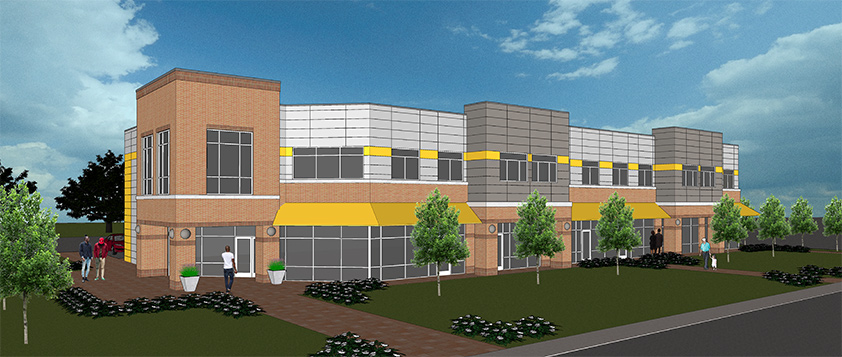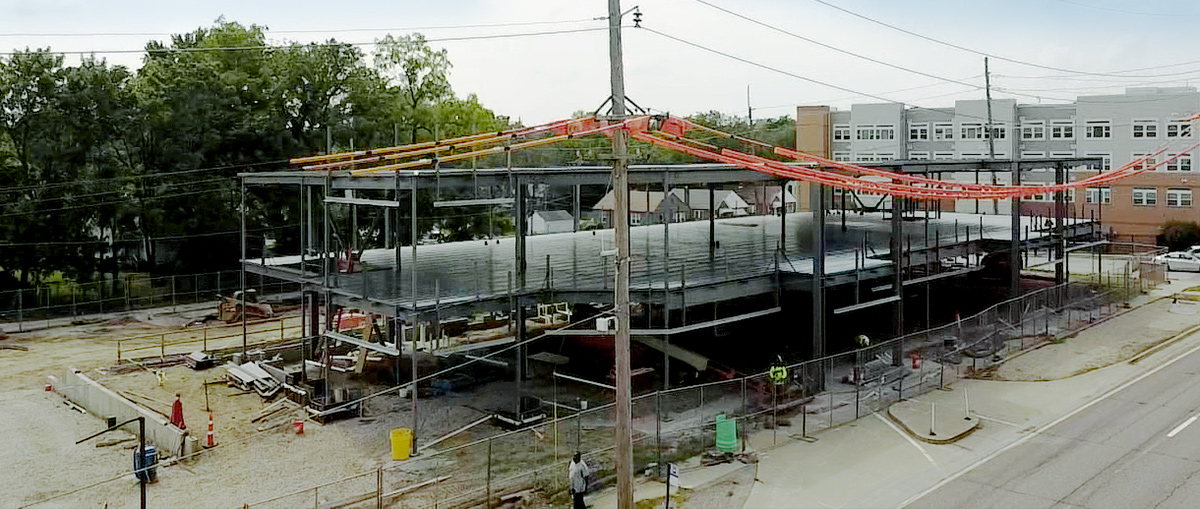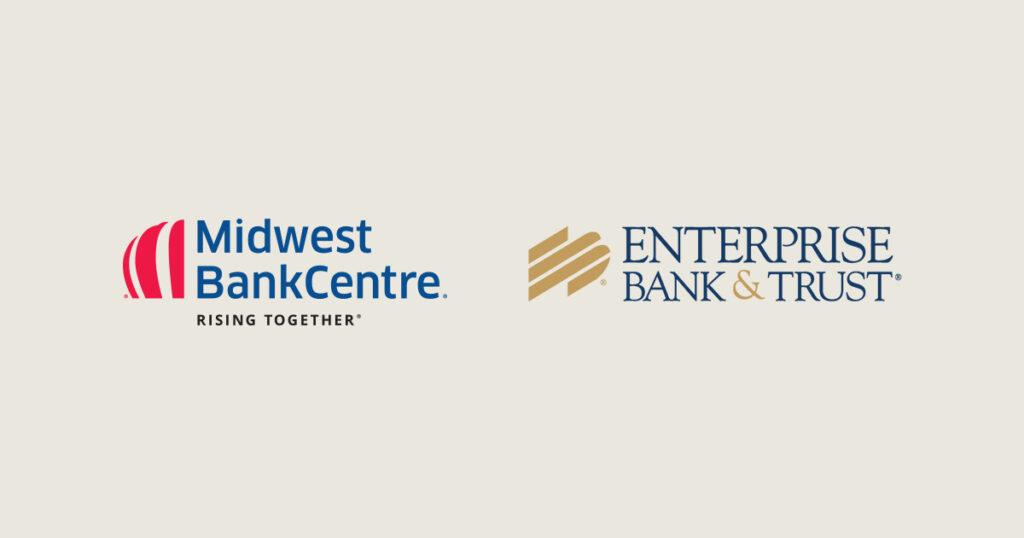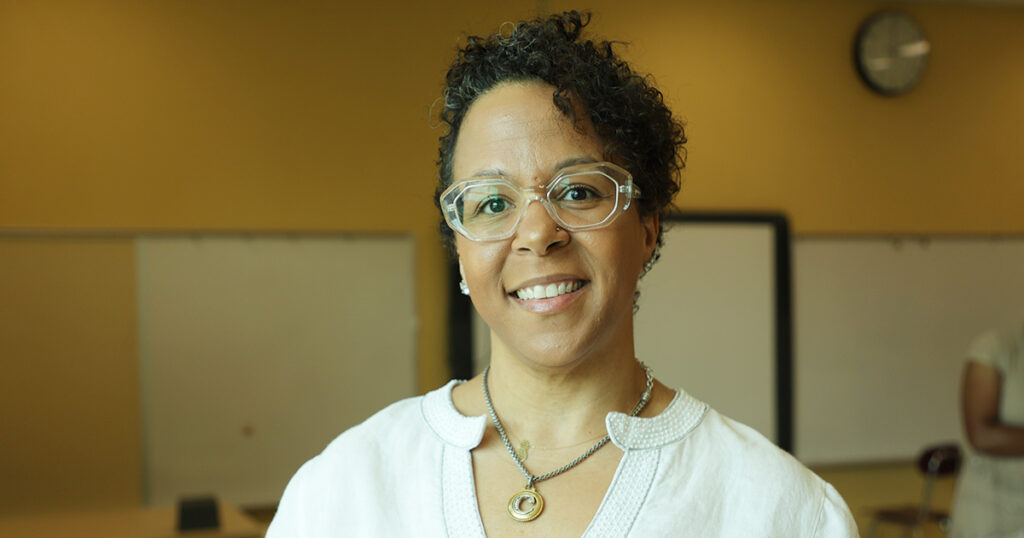At the new Pagedale Town Center II development, the structural steel is being erected this month. Floor slabs will soon be poured, and exterior sheathing will be going up.
These are the clear signs of progress. It’s progress that people who live here or are passing through can see with their own eyes. It’s the kind of progress that plays a critical role in any comeback story and is something that underserved communities—as well as the entire St. Louis area—needs more of. “Not only does it bring new goods and services to the community—it also opens the door to economic expansion and greater opportunity for everyone,” said Beyond Housing CEO Chris Krehmeyer.
Along with these outwardly visible signs of construction that are transforming the physical environment, the entrepreneurs and small businesses who will eventually move into the new $6.5 million space at the corner of Page and Ferguson avenues this winter are making progress too.
Both the physical and the economic foundations are crucial to the project’s long-term success, according to Ken Christian, who leads economic development at Beyond Housing. The nonprofit takes a holistic approach to community development in North St. Louis County, and its track record of completed initiatives includes the current project’s precursor, Pagedale Town Center. That $55 million development, completed in 2017, currently houses a cinema, Cajun seafood restaurant, bank, healthcare facility, and grocery store, among other important neighborhood assets.
The 18,000-square-foot Pagedale Town Center II project, or PTC II, is scheduled to be completed in January 2021. Because Beyond Housing has invested heavily over the years to create an infrastructure of business and nonprofit partners with complementary skills and expertise, it is collaborating on this project with the City of Pagedale, Central Bank of Kansas City, St. Louis County, US Bank, the U.S. Department of Housing and Urban Development, BSI Constructors, and Gray Design.

The two-floor building will include retail, office and food service spaces, with a focus on culinary entrepreneurs who need licensed, professional kitchen space for food prep.
“Beyond Housing’s goal from the outset in creating this building has been to bring goods and services and provide space that’s affordable for community-owned businesses,” Christian said. “We were very deliberate when we started planning for this three years ago.”
Beyond Housing will subsidize rent for start-up occupants, toward the parallel goals of strengthening the local business community and increasing the opportunities for residents to shop locally, Christian said. The latter goal is directly related to feedback Beyond Housing has received from the 24:1 Community, which encompasses the Normandy Schools Collaborative footprint.
“People want to shop within the community and keep their tax dollars here,” Christian said. This is especially important now, in the wake of the COVID-19 pandemic, which has had a tremendous social and economic impact in North County. As part of its goal of serving families holistically, especially during times of need, Beyond Housing’s proven model addresses communities as ecosystems that require many things, each dependent on the other, in order to thrive.
Another Beyond Housing initiative, the 24:1 Small Business Network, has been actively reaching out to the businesses who will move into the new development during this challenging economic time, Christian said. That work is led by his colleague Erica Hallman, Beyond Housing’s economic development specialist. The 24:1 Small Business Network supports entrepreneurs and small businesses by connecting them to information, available resources, and business networking events.
Tenants in PTC II will include Girlfriend’s Closet, Healthy Habits, Missouri Home Health Therapy, Propel Kitchens, and Goss’up Pasta. Christian noted that food insecurity is an issue in the surrounding communities, so having affordable, healthy options within a short walk, bus ride, or drive was something local residents strongly support. “All of our work at Beyond Housing begins with asking the community about their needs,” he explained.






